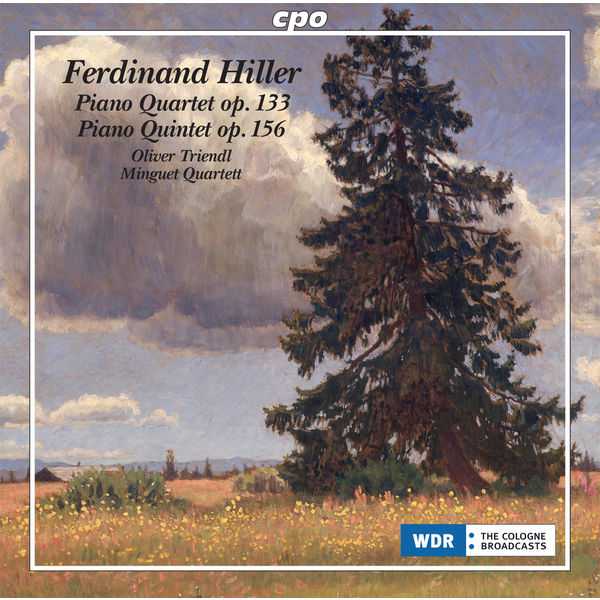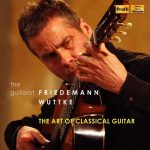
Composer: Ferdinand Hiller
Performer: Minguet Quartett, Oliver Triendl
Format: FLAC (tracks)
Label: CPO
Catalogue: 555312-2
Release: 2022
Size: 331 MB
Recovery: +3%
Scan: yes
Piano Quartet No. 3, Op. 133
01. I. Allegro apassionato
02. II. Adagio espressivo
03. III. Intermezzo. Allegretto grazioso
04. IV. Finale. Allegro con fuoco
Piano Quintet, Op. 156
05. I. Allegro con anima
06. II. Adagio espressivo
07. III. Intermezzo. Allegro leggiero
08. IV. Finale. Allegro con molto fuoco
A plea for a forgotten composer. Ferdinand Hiller was a figure of European renown during his lifetime, but unfortunately his work and activity were quickly forgotten after his death. The two works recorded here, the Third Piano Quartet (1870) and the Piano Quintet Op. 156 (1872) represent the mature Hiller’s weightiest contributions to chamber music.
But despite their initial success, even these demanding pieces failed to gain a lasting foothold in the concert repertoire. While Hiller’s early works were still clearly in the tradition of Hummel, the late ones clearly reflect the new standard that Schumann had set with his works of the 1840s. For his Piano Quartet, Hiller chose the key of A minor, which was considered passionate in the High Romantic period. For long stretches, this key determines the work’s basic dramatic tone, which only brightens into a radiant A major in the Finale. The piano part is too demanding to be performed in the context of house music.
His Piano Quintet proves to be more of a lyrical counterpart to the Piano Quartet. The real surprise is that the theme of the final movement turns out to be a variant of the main theme of the first movement, bringing the quintet as a whole closer to a cyclical form.



